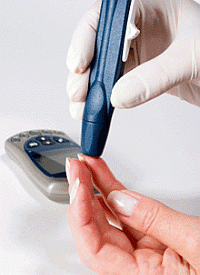29 September 2014. EnteroMedics Inc., a medical device developer in St. Paul, Minnesota, says marketing approval in Europe for its vagus nerve blocking device for obesity is extended to cover type 2 diabetes. A CE Mark, which signifies approval to market regulated products such as medical devices in the European Union and associated countries, is expanded in this case for EnteroMedics’ Maestro Rechargeable system.
EnteroMedics develops devices to treat obesity and metabolic disorders by blocking vagus nerve signaling between the brain and stomach. The vagus nerve extends from the brain to the abdomen, through the esophagus, lungs, and heart, and is part of the involuntary nervous system controlling various bodily functions including digestion.
The company’s technology, called Vbloc, controls signaling along the vagus nerve, targeting perceptions of hunger and fullness that respond to expansion of the stomach and contractions of stomach muscles. Blocking these signals is believed to help individuals better control their appetite and food intake, thus encouraging weight loss. These same signals are also believed to affect secretion of digestive enzymes and blood glucose levels.
The Maestro Rechargeable system incorporates Vbloc technology in a device about the size of a heart pacemaker implanted in the abdominal region. EnteroMedics tested the Maestro system in a clinical trial with 28 obese patients also with type 2 diabetes, over a 3-year period, and reported initial findings last month at a meeting of the International Federation for the Surgery of Obesity and Metabolic Disorders.
After 3 years, patients with the device reported a decrease in blood sugar (glycated hemoglobin) and fasting blood glucose levels, as well as lower body weight compared to baseline measures. In addition, patients with the Maestro device reported improvements in blood pressure among those having hypertension at the beginning of the trial.
The Maestro device is not yet approved in the U.S. However, EnteroMedics is testing the device in a late-stage clinical trial among 234 obese patients, including those with type 2 diabetes, in the U.S. and Australia, where participants receive either a Maestro device blocking vagus nerve signals or a sham device not blocking the signals. Initial results reported earlier this month show patients receiving the Maestro device had more weight loss than patients with the sham device, but the amount of weight loss between the groups, while statistically reliable, did not meet the study’s target of a 10 percentage-point difference.
Read more:
- Blood Glucose Control Drug Approved for Type 2 Diabetes
- Novo Nordisk, University Partner on Diabetes in Big Cities
- Janssen, Univ. of Alberta Partner on Diabetes Research
- Diabetes App Developer Files for FDA Pre-Market Clearance
- Arthritis Drug Shown to Reduce Glucose in Type 2 Diabetes
* * *


 RSS - Posts
RSS - Posts
You must be logged in to post a comment.